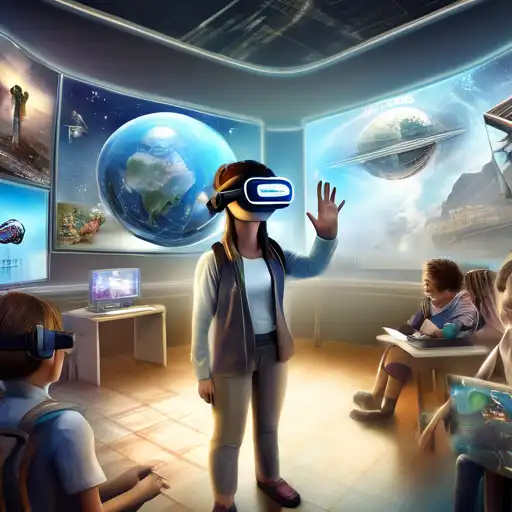Introduction to Virtual Reality in Education
Virtual Reality (VR) is rapidly transforming the educational landscape, offering immersive learning experiences that were once unimaginable. This technology is not just a tool for entertainment but a powerful educational instrument that can enhance learning outcomes, engage students in unprecedented ways, and provide access to environments and experiences beyond the physical classroom.
The Benefits of VR in Learning
VR in education brings a multitude of benefits. It allows students to explore complex concepts in a three-dimensional space, making abstract ideas more tangible. For instance, medical students can perform virtual dissections, and history students can walk through ancient civilizations. This hands-on approach fosters deeper understanding and retention of information.
- Enhanced Engagement: VR captivates students' attention like no other medium, making learning more interactive and fun.
- Improved Retention: The immersive nature of VR helps in better retention of information by engaging multiple senses.
- Accessibility: VR can bring distant or inaccessible environments into the classroom, from the depths of the ocean to outer space.
Challenges and Considerations
Despite its potential, integrating VR into education comes with challenges. The cost of VR equipment and the need for technical support can be prohibitive for some institutions. Additionally, there's a learning curve for both educators and students in using this technology effectively.
Future Prospects
The future of VR in education is bright, with advancements in technology making it more accessible and affordable. As more educators recognize its potential, VR is set to become a staple in classrooms worldwide, offering personalized and immersive learning experiences for students of all ages.
Conclusion
Virtual Reality is redefining the boundaries of education, offering innovative ways to learn and teach. While challenges exist, the benefits of VR in enhancing engagement, understanding, and accessibility are undeniable. As we move forward, VR will undoubtedly play a pivotal role in shaping the future of education.
For more insights into innovative learning technologies, check out our articles on EdTech Trends and The Digital Classroom.
